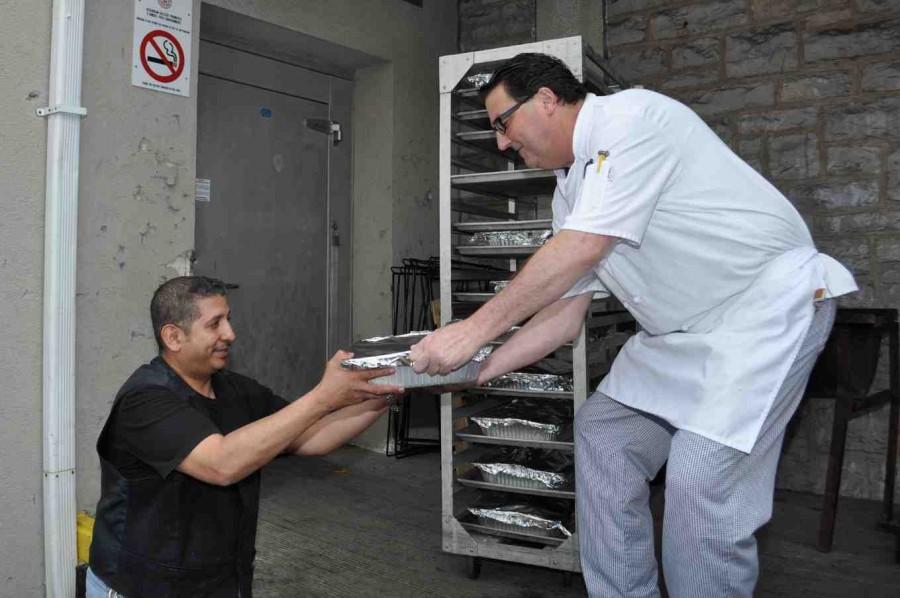Dining Services Surplus Finds New Use
Dining Services has begun donating excess food to The Salvation Army to benefit Carlisle residents in need.
Leftover food prepared by Dining Services is now being donated to needy populations in Carlisle, thanks to a new food donation partnership with the Salvation Army that began this semester.
Food donated through the partnership will be made available to those enrolled in community meal programs, including the individuals and families staying at Stuart House or Genesis House, local housing shelters. Dining Services made its first donation delivery on Feb. 25.
Though Dining Services has had an informal relationship with Project Share and the Salvation Army, there has never been an official donation program. In the past, Dining Services has used leftover food as compost on the college farm. Michaela Shaw ‘16, the Dining Services sustainability intern, devised the idea when brainstorming ways for Dining Services to operate more sustainably while benefiting the local community. Dining Services worked with the college’s Food Advisory Council, a student-led group, and head chef Richie Rice to develop a plan for executing the program. Dickinson staff, including Dining Services Director Errol Huffman, visited the facilities in Jan. and decided to move forward with the program.
Shaw’s list of tasks as an intern included looking into food donation, and managing the campus’ food waste. She found that many organizations charged a fee for accepting donations but “weren’t really doing that much with the money.” When she found Salvation Army and discovered the college had already made some informal donations in the past, she reached out to them immediately. She discussed the plan with Huffman and Rice, and they began developing the program.
Donations will include items nearing the end of their shelf life, or cooked meals with a limited holding life, meaning that they are still suitable for consumption but not for reheating and serving to students the next day but which are usable for Salvation Army meal service. Foods that are useable as an addition to soups and stews will be kept on campus.
“[We] are not being cavalier about how we buy, prepare and dispose of food,” Huffman said. “What we are doing is acting as good stewards of the natural leftover resources we do have.”
Cooked food donations are leftovers with less than ten servings, which could not be used on campus the next day, but combining these foods can sometimes add up to over 100 servings of food. When these supplies are available, Dining Services notifies the charity in order to avoid wasted trips between locations. Any food items that are not donated to the Salvation Army will be composted at the college farm.
Shaw and Huffman are both very pleased to have established this program to contribute to environmental sustainability and community service.
“I liked the idea of doing something which was sustainable but also benefits others,” Shaw said of her motivations for starting the program. “I think this was a good solution.”
When the program was being created, many students contacted her with interest, and she says that if it grows, there could potentially be research opportunities for tracking the operations and results.
“I believe that “formalizing” our partnership with The Salvation Army was long overdue and is one of the right things to do with the resources we manage,” Huffman said. “What better way to dispose of otherwise unwanted food than to give it to someone who is hungry – to someone who wants the food?”
Salvation Army Social Services Director Trinette Ream added, “The Salvation Army is very excited to be partnering with Dickinson Dining Services to help meet the needs of those in our community who are hungry.”






